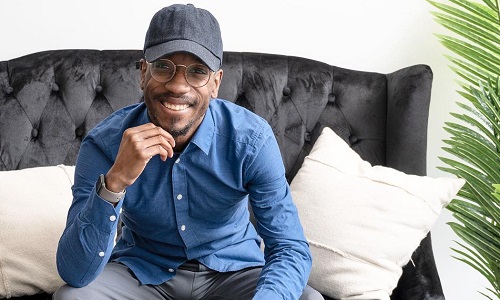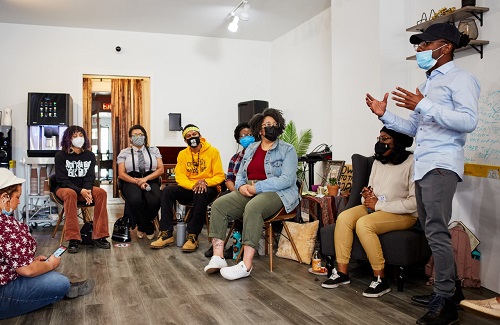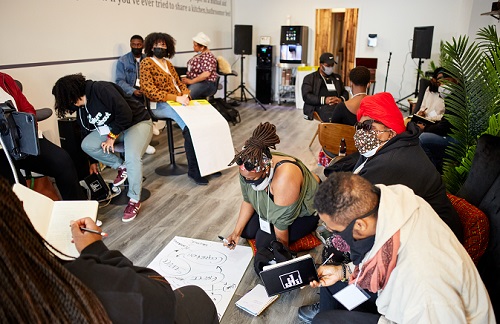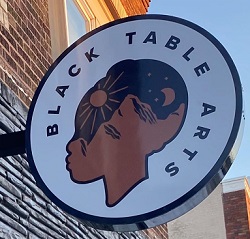Local Leader and Writer: Keno Evol, Founder and Executive Director, Black Table Arts
 Saturday, May 15, 2021 at 7:23AM |
Saturday, May 15, 2021 at 7:23AM |  Becky Fillinger |
Becky Fillinger | Article by Becky Fillinger
What does writing have to do with resistance? Here in Minneapolis, we’ve recently seen protesters and politicians – marching, bearing witness, changing policies, etc., on a number of issues. What do writers, especially writers of fiction and poetry, contribute to resistance? We talked to Keno Evol, founder and executive director of Black Table Arts, to find out.
 Keno Evol
Keno Evol
Q: Please tell us about Black Table Arts.
A: We’re a hub for the practice and development of Black artists. Our address is 3737 Minnehaha Avenue in the Longfellow neighborhood – about seven blocks from the Third Precinct of the MPD. We’re an artists’ co-op interested in practicing black togetherness around issues we care about – food justice, police abolition, artistic and political education. We believe that art makes organizing possible, and if communal healing is ever possible, we must renew our assembly methods.

Workshops in progress

We host a bi-weekly writing workshop for Black writers to discuss what the poem, play, or novel has to say about Black revolutionary thought, home building, love, abolition, etc. We just completed No Future without Art, a two-day intensive training for Black artists interested in organizing and have continued to plan various art-share events for people to kick it, see who is writing alongside them, and who might be open to collaboration/friendship. Events are listed on our socials.
Q: Could you tell us some more about art as a form of resistance?
A: Art creates the enthusiasm that keeps social movements alive. People are drawn to and inspired by beautiful things. Without creativity, organizing doesn’t have the passion to sustain itself. Throughout history, art has been a form of study and joy to sustain resistance for many causes.
Q: Black Table Arts has an annual Event – The Because Black Life Conference – at the The University of Minnesota. Will it be held this year?
A: We’re currently deciding if we’ll hold an in-person and Zoom hybrid event in August. It has been our largest in-person annual event in the past where people come together to initiate, eavesdrop and share creative approaches to organizing – without judgment, paranoia, or hierarchy.
Q: You’re called a facilitator of empathy and imagination. What does that mean to you?
A: I’m a poet. Being a poet is the driving engine behind my personal life. Black surrealist writers have heavily influenced me - those works are characterized by imagination and empathy. Our non-profit seeks to offer space for literacy creativity, and I see myself as a facilitator of that - contributing to civic engagement, black togetherness, and the arts.
 Q: Please tell us about your facilities. Are they available for events?
Q: Please tell us about your facilities. Are they available for events?
A: Our space consists of a bookstore, a performance space, and shared workspaces. Our rooms are named for Black female writers: Suzanne Cesaire, Octavia E Butler, Lorraine Hansbury, and Toni Cade Bambara. The spaces are available for rent – think about holding your next business or book club meeting in our building. You’ll have a modern, clean space and be at the center of civic engagement, art, organizing, Black joy, and imagination.
